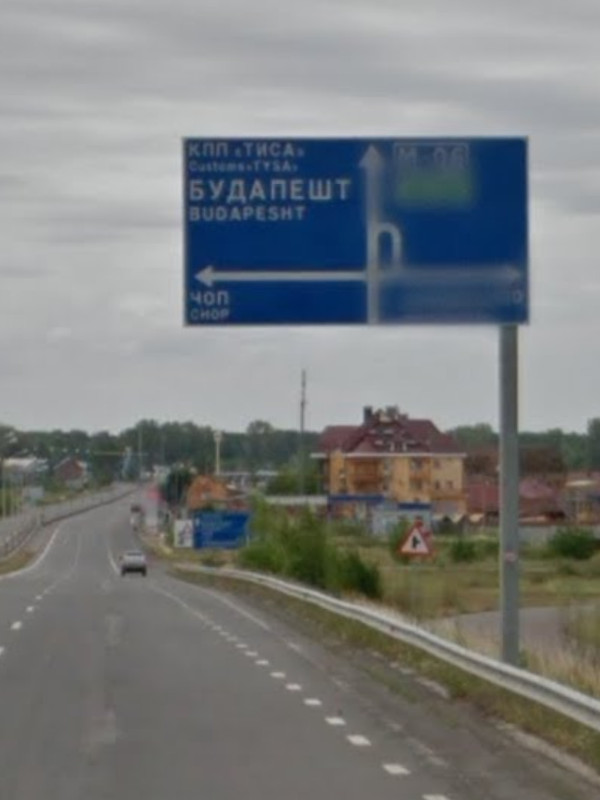Yes our alphabet is absolute shit. S is sh, sz is s, zs is like s in pleasure. Of course english is much worse but hungarian is a strange combination of having a goofy alphabet and writing in general but it actually follows its own rules so its predictable and hungarians will always write the same thing in the same way. Other goofy things about the hungarian alphabet and writing:
- there are letters that are actually 2 or 3 letters combined like sz, cs, ty, dzs, etc
- even tho we have ty, ny, gy, ly; the traditional hungarian alphabet does not contain y(even tho we have some names with y in them but they come from other languages) so some old hungarian fonts only contain a small y and not the capital version Y
- yes we have a letter that is made up of three and in some cases due to grammar you can have a version that is 4 letters long. This is because we have long and short consonants. So cs becomes ccs and sz becomes ssz and in very very rare cases the dzs can become ddzs which is horrifying. But we of course have words which have a a doubled up version instead of a long version because they are compound words so instead of kulccsomó its kulcscsomó
Spanish is similar. Things are pronounced the way they are written. Made learning it way easier than my friends who went the other direction learning english.
Yeah im so happy i grew up in ireland and hungary so i know english to a native level. Hungarian is just a cool conversation starter. I had one year of spanish and the whole phonetic system is really easy, my only problem was the 1 million different conjugations you had to learn. From what i heard english is still worse because you just kinda imply tenses and most people dont have the feel for it.
There’s always a trade-off that makes it difficult it seems. I struggle mightily with Spanish conjugation and gender without having to think about it. In English those two are much less of a concern, but at the cost of having a much stricter word order requirement and our mishmash of word pronunciation from all the French loanwords.
English used to have that. The -eths and -ests that people tack onto random words in a terrible attempt to evoke Early Modern English are supposed to follow similar rules to Spanish verb endings because they’re fundamentally the same thing.
Hard disagree. Your alphabet slaps and once you learn the rules, pronounciation is crystal clear from the way something is written.
Its kinda strange because most foreigners who know about hungarian think its a pretty cool little language but in hungary they have to make it a nationalism thing for some reason and that alienates the youth. Like in school they still have to point out the fact that technically Q W X Y is not a part of the alphabet so dont use words with it(a lot of surnames literally have y’s in them…). While in sweden where i live now everyone uses whatever they want because language is about expressing yourself.
When I was in Budapest on a school trip in 2002, I remember being so relieved upon realizing that our tram stop was pretty much pronounced the way it was written: Nepliget
EDIT: Now that I think about it, maybe the T was silent? It feels like a lifetime ago, so I don’t remember.
Loved the city and the street food, by the way. Sausages were a dirt cheap and delicious snack when just loafing around the city.
Yeah Népliget lol. The t isnt silent. Hungarian doesnt really have silent letters but some letter combinations have rules for easier pronounciation like adta is pronounced atta usually. Sometimes the n on the end of a word is left off in speech but in places where this is common they sometimes even call this a dialect and write it that way because if you dont hear it you wont write it down.
Good ol’ Knee-Ply-Get.
not that i speak either but it’s not like Japanese or Mandarin don’t have confusing constructs either.
Sean Connery: I don’t get it?

This is a sign on the road to Budapesht near the border between Ukraine and Hungary. There’s the weird insistence in Ukraine to do a one-to-one transliteration of Cyrillic to Latin without much thought, so Ш just becomes SH… Google Maps link: https://maps.app.goo.gl/YyzH7xx7gWNJCcqA6
In polish we say and write Budapeszt.
In polish you do almost anythig for those crazy Scrabble scores.
Polish Scrabble has just 1 point for
Z. Meanwhile, the Czech spelling Budapešť uses the 7-pointŤ!
First I didn’t know what was wrong, only saw the cyrillic version. Then I noticed they transcribed it back to Latin in a different way to the original - that’s mindblowing! I also kinda read it as bud ape shit.
I say Paris but here it sounds like Paris.
Tomato tomato
The real test is Montreal.
Louisville, KY is neither of the pronunciations you’re thinking.
Luu-uh-vuul!
Also occasionally sounded like Lull-vull.
Leur’vl
“LUH-vull.”
As a Craig Ferguson enthusiast, I know for a fact It’s pronounced “Wrvrl”
As an Ohioan I got really confused until I realized louville wasn’t one of the ways I was supposed to be thinking…
Meh better than Versailles Kentucky (pronounced like it’s an English word)
Tiohtiá:ke? :p
Your mean joe-jah-geh ?
As long as anglophone Canadians say Montree-all, I’ll take that as the correct pronounciation lol
and Toronto.
All I know about Toronto is that its residents are called Torontulas. That by itself makes me want to move there.
Where does Hawai’i vs Hawaii fall on the scale?
I believe the whiter you are, the more stank you’re supposed to put on the “'i.”
Germans when pronouncing the name of the Seine river:
„𝑍𝔢𝑦𝔫𝔢!“
What?
“Seine” is also a German word meaning the pronoun “his” or “its”, indicating a [m/n]'s ownership/relation to [f/pl]. (Brackets indicate grammatical gender of the subject/object that make seiner inflect into seine.)
Examples:
- Seine Eltern kommen aus Polen. His parents come from Poland.
- Das Schaf lasste seine Wolle geschnitten werden. The sheep let its wool get cut.
It’s possible to take this too far, like mispronouncing “Beijing” as “bei-zhing” because it sounds more foreign and gives the impression of being educated and well-traveled.
TIL it’s not bei zhing
This will sound weird, but if I say it “in English” it’s Bei-zhing, and if I say it in Chinese it’s Běi-jīng, and that J isn’t really a phoneme we have in English anyway. So nobody’s really pronouncing it right.
A name from a tonal language will never sound entirely right in English, though I got used to pronouncing “-jing” with the “j” sound from “jiffy”. For a while, I thought the “zh” sound was correct, partly because other people said it that way, and partly because it sounded plausibly exotic, until I discovered that there was actually a phenomenon for this mistake called hyperforeignism.
I’m familiar with the phenomenon, what I’m saying is “j” in pinyin represents a phoneme that we don’t actually use in English. Ironically, the “zh” sound in pinyin is probably a closer approximation to the “j” sound in “jiffy”. The hyperforeignism of Beijing seems to be from misapplying the reading rules for French, not Mandarin, so it’s an interesting case, but both pronunciations are only approximations.
Kinda opposite where I live because we speak a dialect (of German) where s gets turned into sh
Nett hier
Oida
We’re more like. Oulta
Saying Ahmsterdahm instead of emsterdem
ermagerd, Emsterdem!
That’s just common sense. Who would say emsterdem?
Americans
Iyeemsturrdyem
The difference is saying the am and dam like the american english version of those words, versus saying both As like the beginning of Amish.
Funny thing is that both ways aren’t quite right, as both As should be short. The second way is best though
I just say Budapesht because I liked Castlevania.
My German father, who lived and worked in Budapest for a long time, pronounced it wrong. I rarely have cause to use the name but when I do, I try to do it justice.
I wouldn’t say it’s wrong if he pronounced it the German way in German speech. I mean I also don’t go around saying My grandma lives is Moskwa and I met my husband in Sankt Peterburg just to keep the native pronunciation. If he talks Hungarian and pronounces it wrong within a Hungarian sentence though…
In German in recent decades it’s fashionable/expected to pronounce central European cities the way the inhabitants do. Probably due to the wars and the ethnic transformations…
Sure? I have never heard anyone say Praha or Warszova or anything
Me neither. If someone here in Germany started saying Lisboa or Barcelona I would be thrown off and, very honestly, also find it a tiny bit pretentious.
Edit: throwing in the question how to pronounce towns that are on a border and have both kinds of pronunciations used by inhabitants
Bratislava instead of Pressburg, Ljubljana instead of Laibach, Zagreb instead of Agram.
Lwiw/Lemberg or Brno/Brünn is probably both used.
Prag and Warschau as well as Krakau are firmly used instead of the local ones.
Ok, true. It’s a slow process but the trend is there
The one that always makes me laugh is any time someone has Pablo Escobar without a Paisa accent. In the accent Pablo should have, the city he is from (Medellin) is pronounced Med-uh-jean, not Med-uh-yeen.
There are other words and phrases that you can tell when the actor isn’t colombian paisa but that’s the biggest.
Now do Nijmwegen
Nijmegen? Is it particularly exceptional, or just normal Dutch? /'nɛɪ.meː.ɣə(n)/, in a GenAm accent I would imagine something like NYE-may-ghen or NAY-may-ghen… but being American, it’s not something I’ve ever actually heard one of my compatriots say aloud.
I’m not even sure how I would pronounce Nijmegen if I didn’t speak Dutch lol
Saying yob instead of job
Saying isstree instead of history













